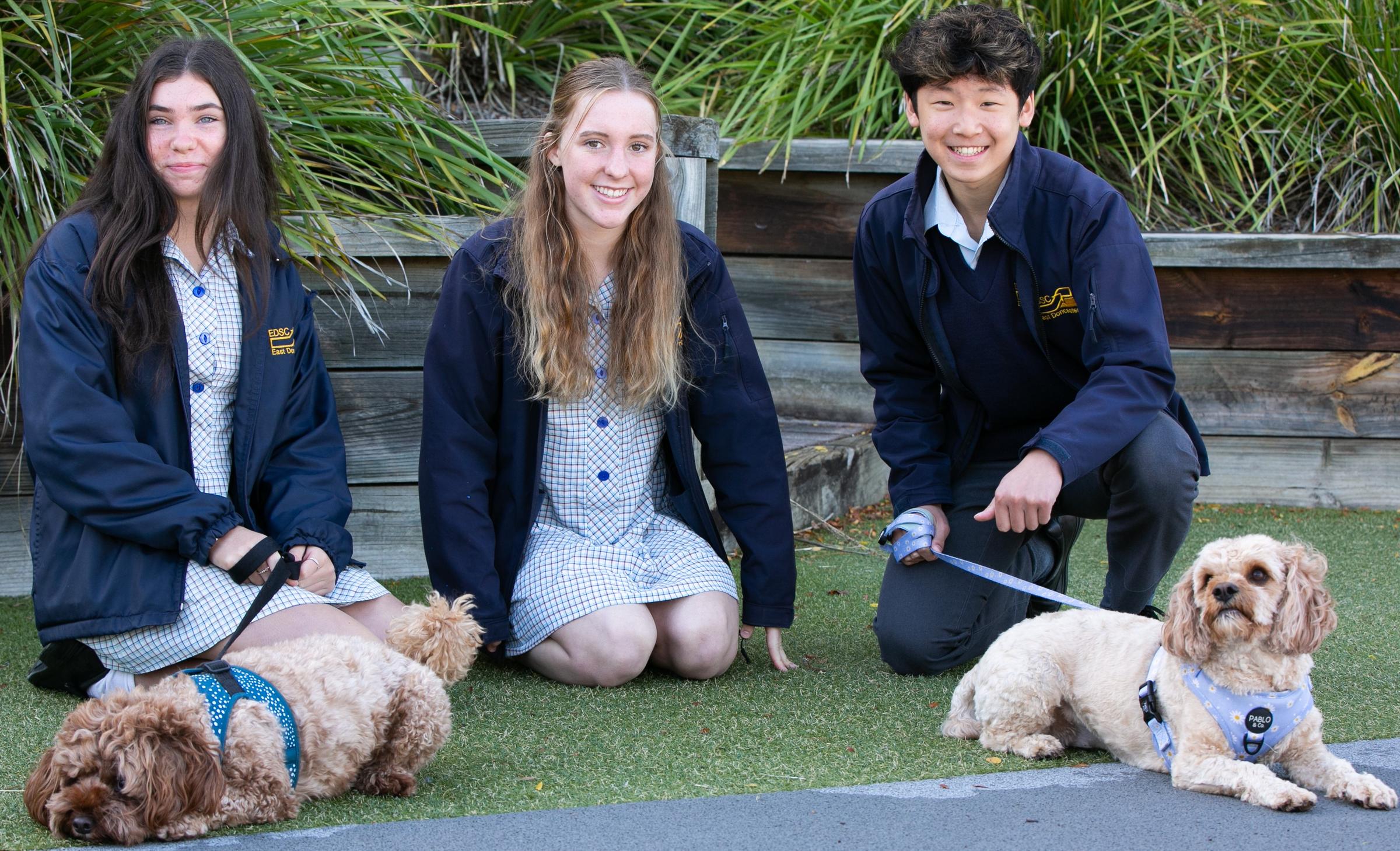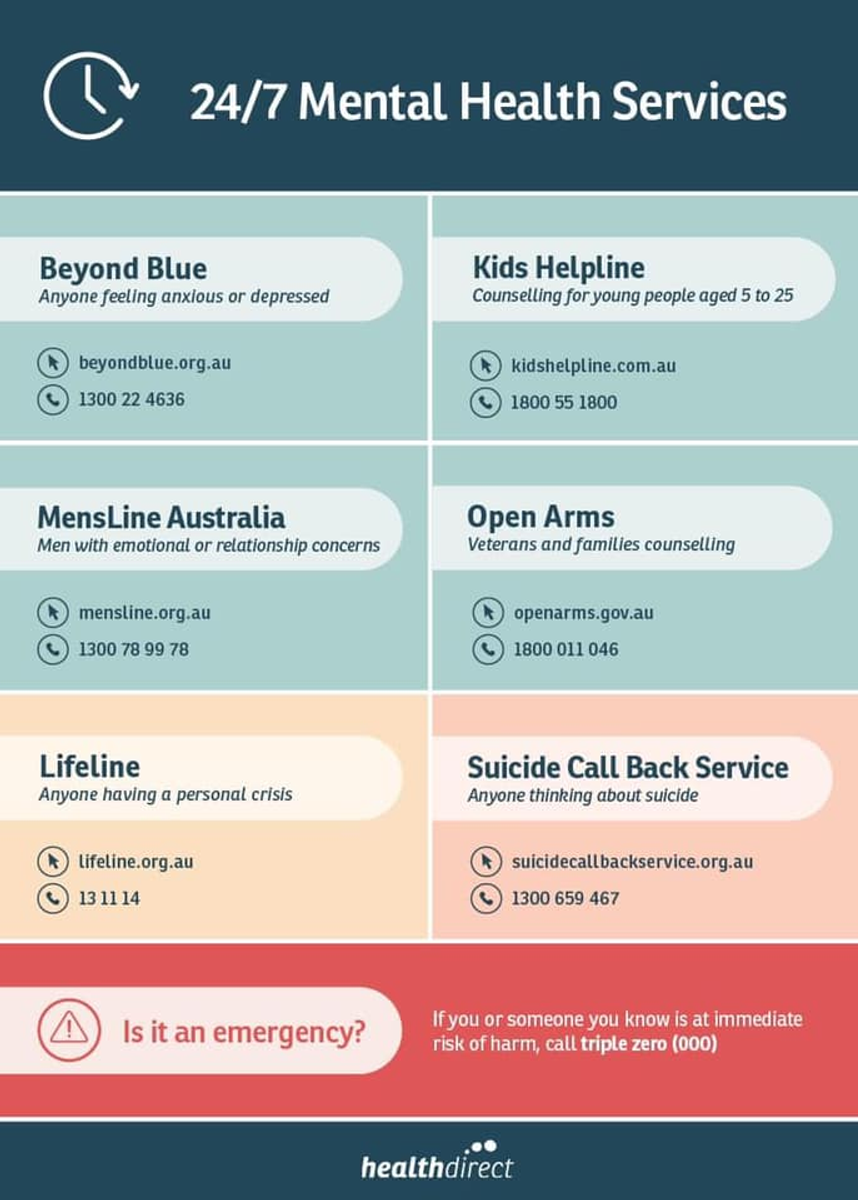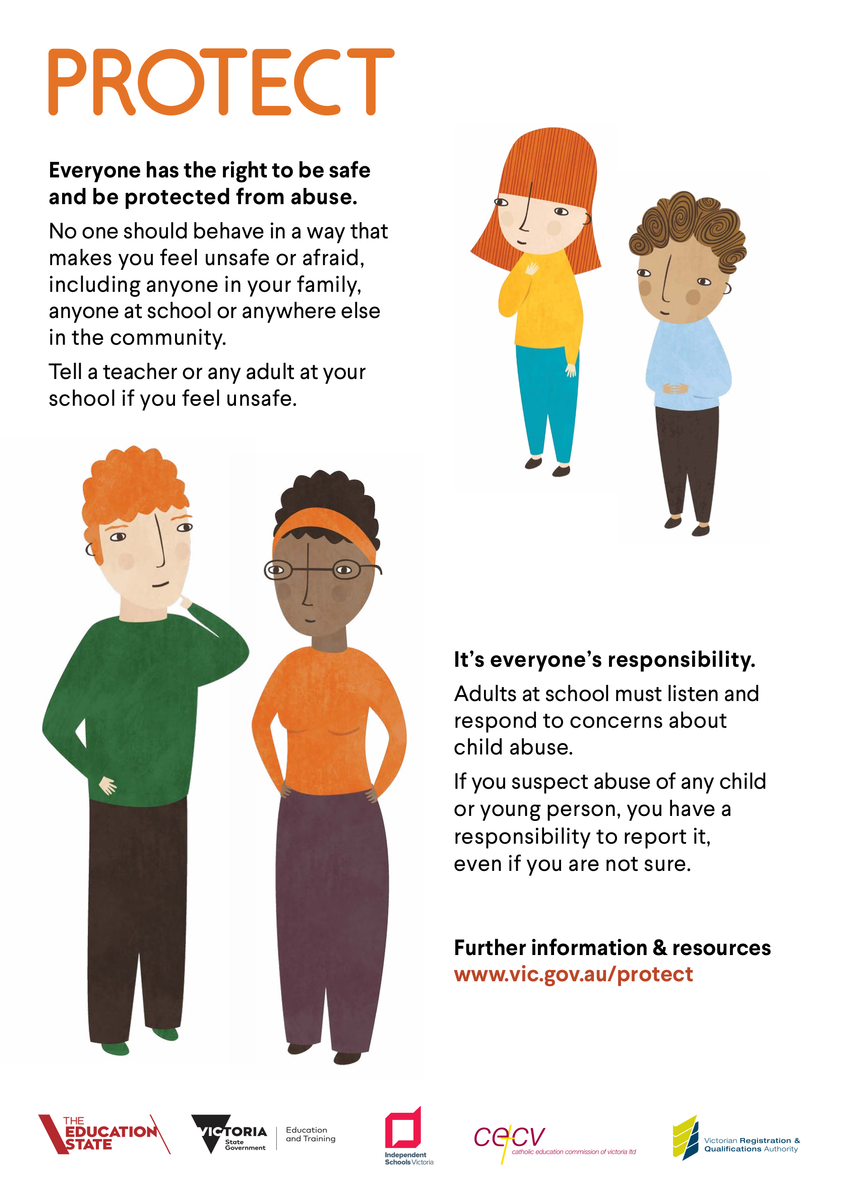Student Wellbeing News

Keeping safe
Recently there has been a lot of news coverage around youth crime and violence. Recent reports indicate the most common incidents for youth offenders (2022-2023) were crimes against the person (a 29% increase compared to 2021-2022), property offences (36%) and public offences such as public nuisance, and disorderly and offensive conduct (29% increase).
It is important to stay safe with antisocial behaviours, especially navigating public spaces, shopping centres, public transport and in social gatherings.
It's therefore essential to prioritise personal safety and be aware of your surroundings. Following are some general tips for students and parents.
- Stay Alert: Always be aware of what's happening around you. Avoid distractions like using your phone excessively when walking in public areas and listening to music. Make sure you can hear and see what is going on around you.
- Trust Your Instincts: If something feels off or uncomfortable, trust your gut and remove yourself from the situation if possible.
- Stay in Well-Lit Areas: Stick to well-lit and populated areas, especially during the evening or night.
- Travel in Groups: Whenever possible, travel with friends or in groups, as there is safety in numbers.
- Report Suspicious Activity: If you witness any antisocial behaviour or suspicious activity, report it to the appropriate authorities or security personnel immediately.
- Secure Your Belongings: Keep your belongings such as wallets, phones, and bags secure to avoid theft or loss.
- Know Emergency Contact Information: Familiarise yourself with emergency contact numbers and know where to find help if needed.
- By following these tips, you can help ensure your safety while navigating public spaces. Shopping centres, public transport, and social gatherings.
Tips for parents
Here are some tips for parents to help ensure the safety and well-being of their children:
- Open Communication: Foster open and honest communication with your children. Encourage them to talk to you about any concerns or issues they may have. Ask about their friends, get to know their friends.
- Set Boundaries: Establish clear boundaries and rules for your children, such as curfews, internet usage guidelines, and rules for socialising with peers.
- Teach Safety Skills: Teach your children important safety skills such as how to navigate the street safely, what to do in case of emergencies, and how to recognise and respond to dangerous situations.
- Monitor Online Activity: Be aware of your child's online activities and set parental controls to limit access to inappropriate content. Educate them about online safety, including the dangers of sharing personal information online.
- Encourage Independence: Allow your children to gradually become more independent while still providing guidance and support. Teach them skills like problem-solving and decision-making.
- Be Involved: Stay involved in your child's life by attending school events, extracurricular activities, and spending quality time together as a family.
- Teach Empathy and Respect: Teach your children the importance of empathy, kindness, and respect for others. Encourage them to stand up against bullying and to treat others with compassion.
- Stay Informed: Stay informed about current issues and trends that may impact your child's safety, such as drug use, cyberbullying, and peer pressure.
By following these tips, parents can help create a safe and nurturing environment for their children to grow and thrive.
Lisa Trovato
Student Wellbeing Coordinator
Breakfast Club
The Wellbeing Team believes that offering high school students a Breakfast Club can significantly promote physical health, mental wellbeing, academic success, and a positive school culture.
The Breakfast Club will take place every Monday from 8:15 am to 8:45 am at the Wellbeing Hub.
All students are welcome to join us for free healthy breakfast options. A group of community volunteers will run the Breakfast Club, and we kindly ask that you show respect and appreciation for their time and effort.
When: Every Monday
Where: Wellbeing Hub
Who: All students are welcome
Time: 8:15 am – 8:45 am
Cost: Free
We hope to see you there and look forward to a great time!
Amal Saleh-Zada
Director of Wellbeing
Request for Uniform Donations
The Wellbeing Team provide second-hand uniforms for students in need. We are asking for uniform items, in good condition to be donated to the Wellbeing Team. Specifically, we are looking for dresses, shirts, pants, jackets and any sports uniform in larger sizes.
If you require uniforms for your child, please contact the Wellbeing Team for support.
Maddie Sill
Mental Health Practitioner
Cybersafety and Responsible Use of Digital Technologies
The following resources are available to parents and carers to assist them with guiding their children with the use of digital technology in a safe and responsible way. Parents and carers are their child's first role model when it comes to online behaviour. Please find information to assist parents and carers when dealing with Cybersafety issues:
https://www.esafety.gov.au/parents
https://www.education.vic.gov.au/parents/services-for-parents/Pages/parentline.aspx
https://www.esafety.gov.au/about-us/counselling-support-services
The following fact sheet may assist in encouraging the safe and respectful use of social media and to provide tips to parents for being a positive role model: https://www.education.vic.gov.au/Documents/about/programs/bullystoppers/parentsocialmediaschoolcommunity.pdf
If parents/carers have any questions regarding Cybersafety or Digital Learnings in Schools and our Mobile Phone Policy, please contact Reception.
Cameron Campbell
Assistant Principal
Food & Financial Support
As we are all aware, the cost of living is increasing. We realise that this might be causing some distress to members of the EDSC community. If you are experiencing financial difficulties or food insecurity please look at the website www.askizzy.org.au. This website can help you locate services for food, money, clothing, health & housing in your area.
The College is able to provide a range of food to families within the community. Foodbank Victoria provide EDSC fresh fruit, cereals, milk, different types of ready meals, fruit cups and messy monkey snacks. If you and your family are experiencing food insecurity, please contact the school to arrange a food collection. For a confidential conversation, please call Maddie Sill on 9842-2244.
Please also note that if your child forgets their lunch they can come to the Wellbeing Hub to access the pantry.
Wellbeing Team
Wellbeing Staff
For more information about Wellbeing at the College, please visit the following link ..
Child Safety Standards
East Doncaster Secondary College is committed to the safety and wellbeing of all children and young people. This will be the primary focus of our care and decision making.
East Doncaster Secondary College has zero tolerance for child abuse.
East Doncaster Secondary College is committed to providing a child safe environment where children and young people are safe and feel safe, and their voices are heard about decisions that affect their lives. Particular attention will be paid to the cultural safety of Aboriginal children and children from culturally and/or linguistically diverse backgrounds, as well as the safety of children with a disability.
Every person involved in East Doncaster Secondary College has a responsibility to understand the important and specific role he/she plays individually and collectively to ensure that the wellbeing and safety of all children and young people is at the forefront of all they do and every decision they make.
In our planning, decision making and operations, all personnel at East Doncaster Secondary College will:
- Take a preventative, proactive and participatory approach to child safety;
- Value and empower children to participate in decisions which affect their lives;
- Foster a culture of openness that supports all persons to safely disclose risks of harm to children
- Respect diversity in cultures and child rearing practices while keeping child safety paramount;
- Provide written guidance on appropriate conduct and behaviour towards children;
- Engage only the most suitable people to work with children and have high quality staff and volunteer supervision and professional development;
- Ensure children know who to talk with if they are worried or are feeling unsafe, and that they are comfortable and encouraged to raise such issues;
- Report suspected abuse, neglect or mistreatment promptly to the appropriate authorities;
- Share information appropriately and lawfully with other organisations where the safety and wellbeing of children is at risk; and
- Value the input of and communicate regularly with families and carers.








